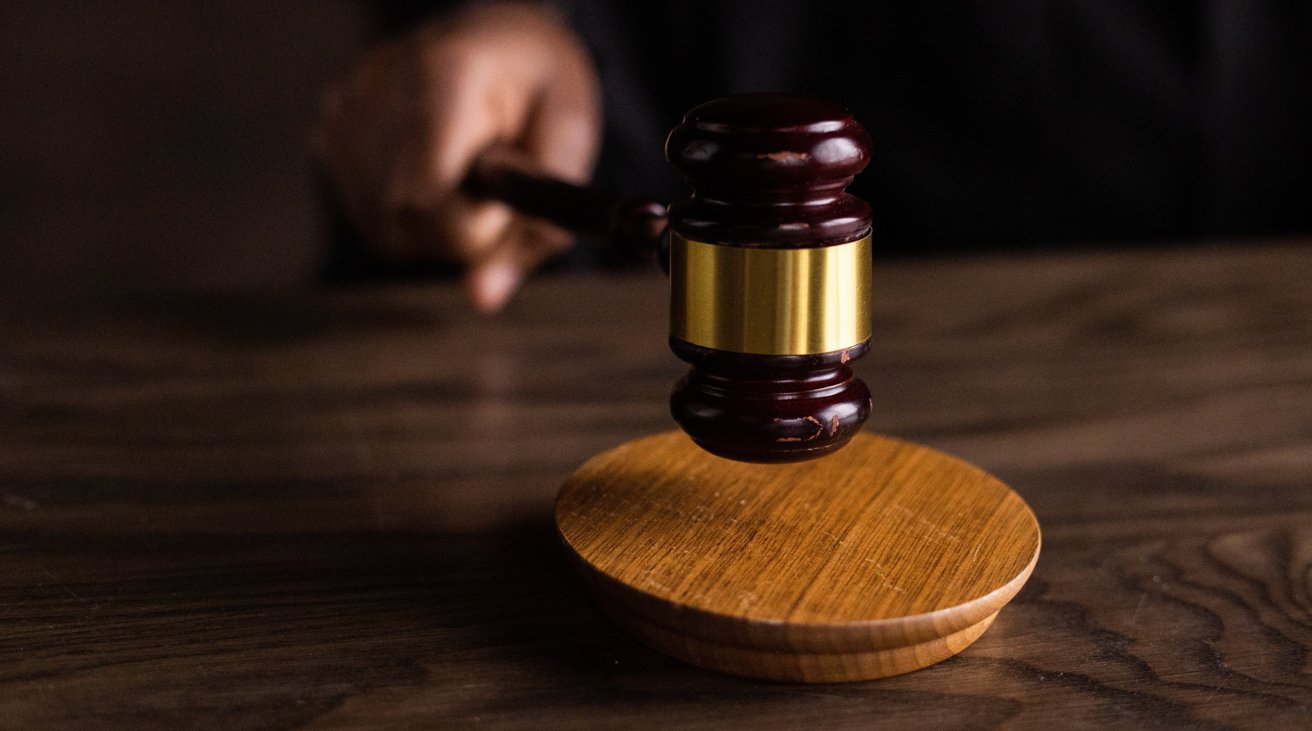Apple has become the target of another lawsuit from a company exhibiting patent troll-like behavior, with Sonrai Memory alleging Apple infringed a pair of patents has acquired.
Filed at the U.S. District Court for the Western District of Texas on July 15, the lawsuit by Sonrai Memory Limited against Apple accuses the Cupertino tech giant of infringing on two patents in its possession.
One patent, 6,874,014, is titled "Chip multiprocessor with multiple operating systems, dating back to 2005. The other, 6,724,241, is called a "Variable charge pump circuit with dynamic load," first granted in 2004.
According to the filing, spotted by Patently Apple, the infringements involve a long list of Apple products, going as far back as the iPhone 6 and iPhone 6 Plus, the fifth-generation iPad, all iPad Pro generations, and various MacBook Air and MacBook Pro models.
Apple infringes the 014 patent with technology used in the A-series, M-series, and T-series chipsets, the filing claims. Meanwhile, the 241 involve the SK Hynix NAND Flash die, a chip used for handling storage.
The filing demands damages, costs, expenses, interest, a judgment for ongoing licensing fees, and "reasonable attorneys' fees." A trial by jury is also requested.
Apple is regularly the target for patent-related lawsuits, and in some cases, the suits are made by non-practicing entities (NPEs), which are also known by the term "patent trolls."
In the case of Sonrai Memory, it seems to be exhibiting many behaviors that make it seem like it is an NPE. The company isn't known for making actual products or offering services, outside of lawsuits, but did acquire the patents in the suit from Hewlett-Packard and semiconductor company Atmel.
Sonrai Memory has also filed similar patent infringement suits against Western Digital, Google, Samsung, LG, Lenovo, and others since July 2021.
It also seems that the registration of the company itself is very NPE-like in nature. According to the Irish Times, Sonrai Memory Limited and several NPEs share the same address in Dublin, as well as directors, with the firms all holding patents for technologies and have been involved in litigation.
 Malcolm Owen
Malcolm Owen




-xl-m.jpg)


-m.jpg)






 Mike Wuerthele
Mike Wuerthele

 William Gallagher
William Gallagher
 Thomas Sibilly
Thomas Sibilly
 Wesley Hilliard
Wesley Hilliard
 Marko Zivkovic
Marko Zivkovic










29 Comments
Patents from 2004 and 2005 would have to be extremely general to match anything being designed today.
There is nothing illegal with any company that "exhibits patent-troll like behaviour." Designating them with the demeaning word "trolls" shows bias. In a free market there are many speculative ways to make money, and obtaining patents and testing them in court is a legal and valid way to make money. Apple itself probably buys patents by buying companies that own patents, which is also a form of speculating in the patent trade. It's actually smart behaviour. I've never seen AppleInsider criticize Apple for buying companies with patents, for the patents. What's the difference? Why the double standard?
When Apple bought 17,000 patents from Intel two years ago, AppleInsider didn't call Apple a "troll" but rather suggested it was smart of Apple to purchase them.
https://appleinsider.com/articles/19/07/25/apple-buys-intel-4g-and-5g-modem-patent-portfolio-for-1-billion <--
There is no requirement under the patent system that the patent inventor needs to also be the manufacturer who produces the goods based on his patent. That is a myth. The whole patent system encourages innovation by allowing people who don't manufacture things to get rewarded from designing things without having to manufacture them. You don't need to build mousetraps to be able to patent one. You aren't a "troll" just because you are an inventor and not a manufacturer.
By saying, as you do, Appelsauce007, that only companies big enough to manufacture their patents are legitimate patent holders, you are undermining one of the great benefits of the patent system. Under your logic, if you bequeathed a patent to your child upon your death, your child would become "a patent troll" because they didn't produce their own goods or services based on the patent they inherited form you. That's wrong. I celebrate the fact that people can hold patents without being manufacturers, whereas you deride it.